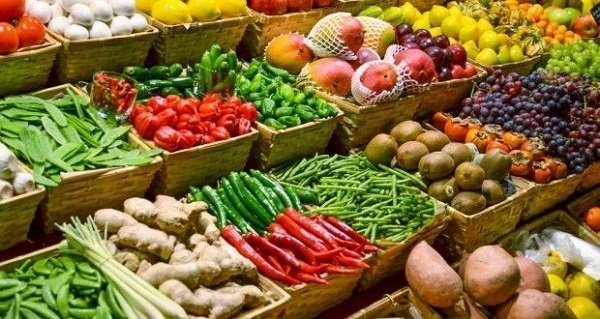- Food prices decrease in major grain markets in Kano, Taraba, and Niger states
- Multi-billion naira feed companies halt purchases, inter-state movement ceases, and crackdowns on hoarding contribute to the drop in prices
Food prices have begun to decrease at major grain markets in Kano, Taraba, and Niger states.
In recent weeks, there have been protests in Lagos, Kano, and Niger states, as well as in Ibadan, Oyo State, against the prevailing hardships faced by citizens. Prominent figures such as former Vice President Atiku Abubakar, the Sultan of Sokoto, Muhammadu Sa’ad Abubakar, and the Emir of Kano, Aminu Ado Bayero, along with organizations like the Arewa Consultative Forum (ACF) and Northern Elders Forum (NEF), have called on the federal government to address these issues.
President Bola Tinubu and state governors convened last Thursday to discuss measures aimed at reducing the prices of food items.
Several factors have been attributed to the recent drop in food prices, including the decision by multi-billion naira feed companies to halt purchases, the cessation of inter-state movement with food items in certain regions, heightened surveillance along borders to prevent exports, and crackdowns on hoarding of grains.
In Kano State, prices of maize, soya beans, beans, and rice have decreased at markets such as Doguwa, Tudun Wada, and Bunkure. The sealing of warehouses accused of hoarding grains by the Kano State Public Complaint and Anti-Corruption Commission has contributed to this drop in prices.
Similarly, in Taraba State, prices of various grains have decreased at Mutum Biyu, Garba-Chede, Maihula, and Iware markets. The absence of middlemen who used to make bulk purchases has been cited as a reason for the price drop.
In Kwara State, prices of grains like maize and beans have gradually declined at local markets. The reduction in prices is attributed to factors such as decreased demand and fears among hoarders that government policies may lead to price crashes.
In Niger State, especially in Bida, prices of maize and guinea corn have reduced, thanks to the government’s ban on bulk buying of grains from markets. However, prices of fertilizers have increased significantly ahead of the upcoming rainy season farming.
While food prices have dropped in several states, prices in Benue State remain high, with some commodities experiencing price jumps. In Katsina State, prices of farm produce have started to decrease following the withdrawal of animal feed companies from markets.
The recent decision by major animal feed producers to suspend the purchase of maize and sorghum across the country has also contributed to the drop in grain prices.
In Ibadan, Oyo State, hundreds of protesters took to the streets yesterday to protest against the hardship caused by the high cost of living. The protesters called for urgent intervention from political leaders to alleviate the suffering of the people.









Discussion about this post